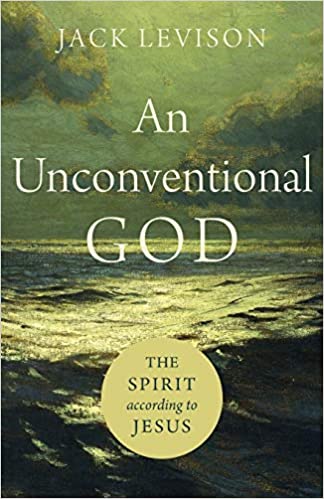BEN: Two of the concepts I have stressed in my recent volume Biblical Theology is, as Goldingay says we must let the OT be the OT, but also we must have a sense of progressive revelation in the Scriptures, and progressive understanding of that revelation across the canon. The author of Hebrews in Heb. 1 says that before Christ the revelation was partial and piecemeal. This does not mean it was inaccurate or untrue, but it does mean it was incomplete and that Jesus becomes the full and climactic revelation of the actual character and plan of God for humankind. We must be wary of the Christian over-reading of the OT, but at the same time we must be wary of under-reading the newness of the NT which involves more than just a retreading of old ideas and old covenants in the OT, more than just a fulfillment of OT prophecies, promises, institutions. The matter is complex. How do you view the notion of progressive revelation in the Scriptures, and how does that affect your interpretation of the Spirit and the Spirit’s role in the Bible? (Did you ever read C.K. Barrett’s The Holy Spirit and the Gospel Tradition by any chance?).
JACK: I did read Barrett (who wouldn’t want to read anything Barrett wrote?), though it was a while ago. And I don’t have a consistent perspective on progressive revelation. I suppose I would turn this question on its head. It is not the New Testament that determines how we read the Old Testament but the OT that determines how we read the NT.
What do I mean? The NT writers clearly were seeped in Israel’s traditions. Take out OT allusions and citations, and you have precious little New Testament left. They took creative tacks with these texts and traditions, of course. Just think of the rock moving around in the wilderness and its identification with Christ in Paul’s letter, 1 Corinthians! Nowadays, we tend to read the New Testament without that deep, rich awareness of the Old Testament story. What I so appreciate about Tom Wright’s work is that he seems to keep one eye on the OT while reading the NT; we might dispute what he does with this or what trajectory he identifies, but you can’t fault him for failing to read the NT in light of the OT. He does this brilliantly. I think of Marty Feldman, who played Igor in the movie, Young Frankenstein, who had one eye that looked straight ahead and another sideways; I think of Tom Wright in this way (though don’t tell him I compared him with Marty Feldman!), reading the NT with one eye and the other directed sideways to the OT.
What’s my point? I think how the Holy Spirit is understood in some Old Testament passages should influence how we understand the Spirit in the New Testament. And, as I said earlier, I’ve traced out the indispensable, formative, defining influence of a text such as Isaiah 63 on specific texts in the NT, such as Jesus’ teaching on blasphemy in both The Holy Spirit before Christianity and An Unconventional God. That is why I don’t move quickly to a Trinitarian reading. I do not think, on the whole, New Testament authors were Trinitarian when it came to the Holy Spirit. They were too steeped in Israel’s traditions to do so. The OT framed their thinking, formed their thinking, fueled their thinking.













